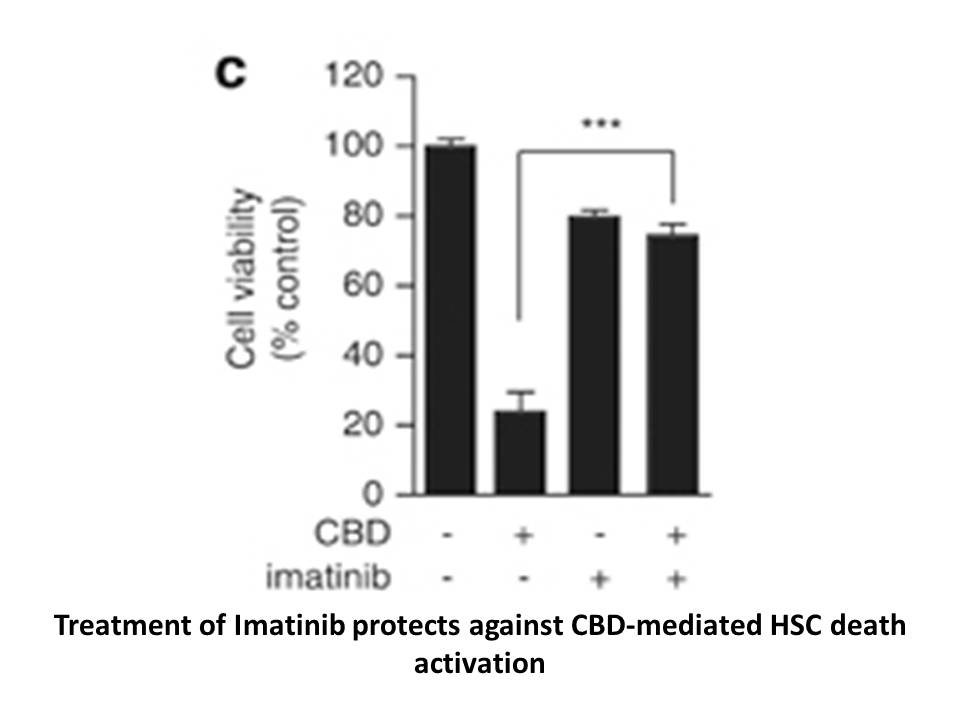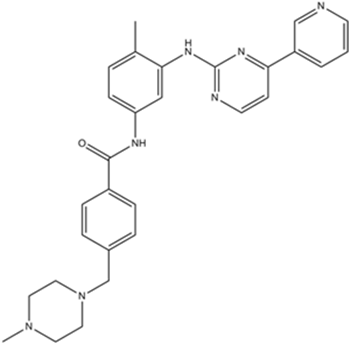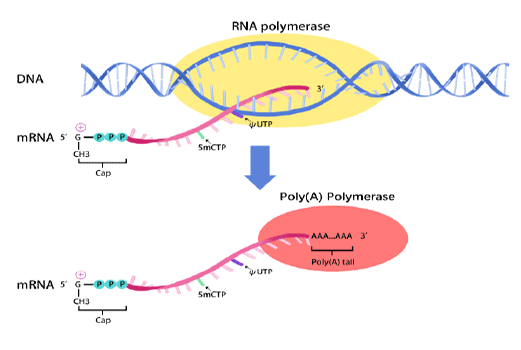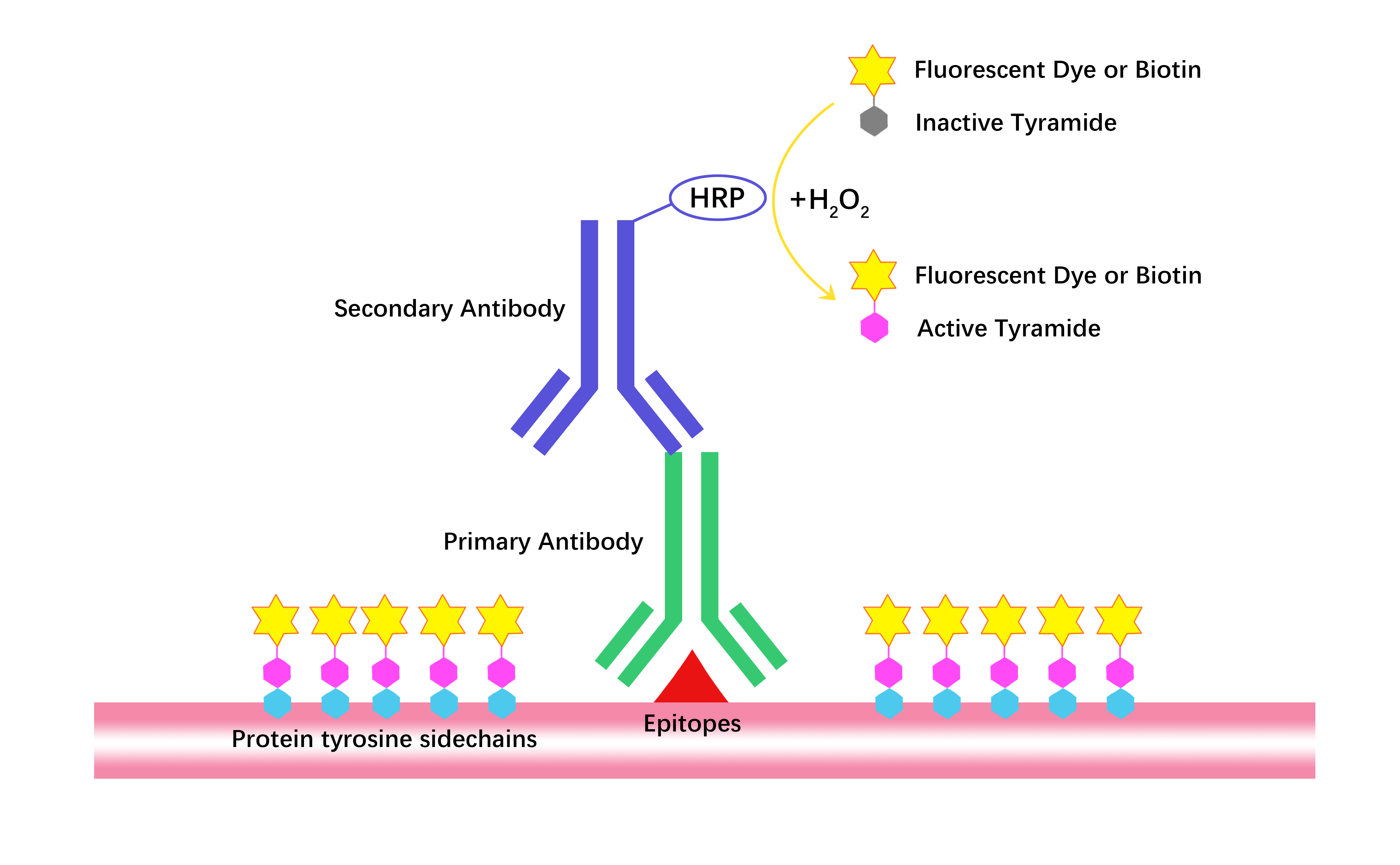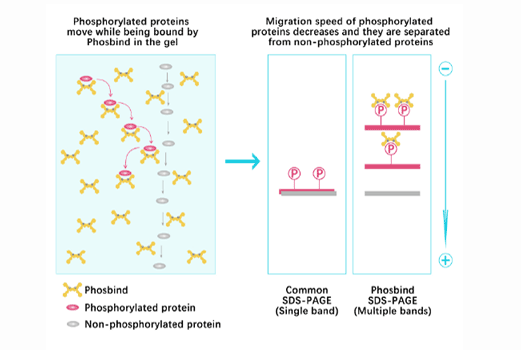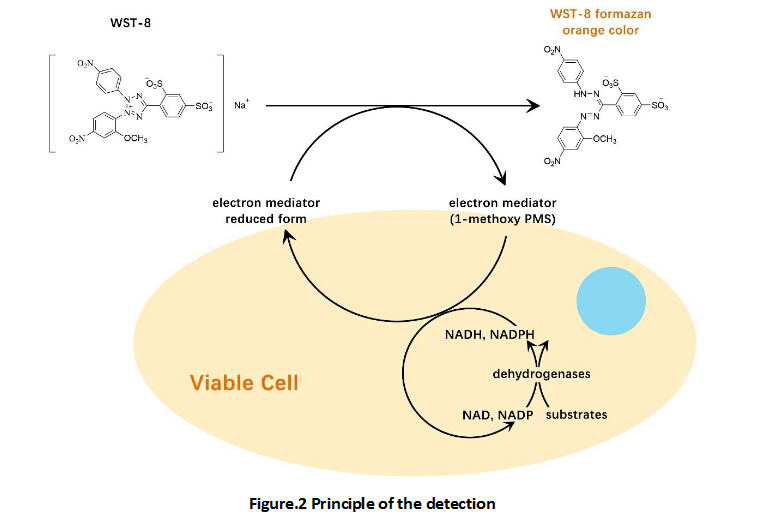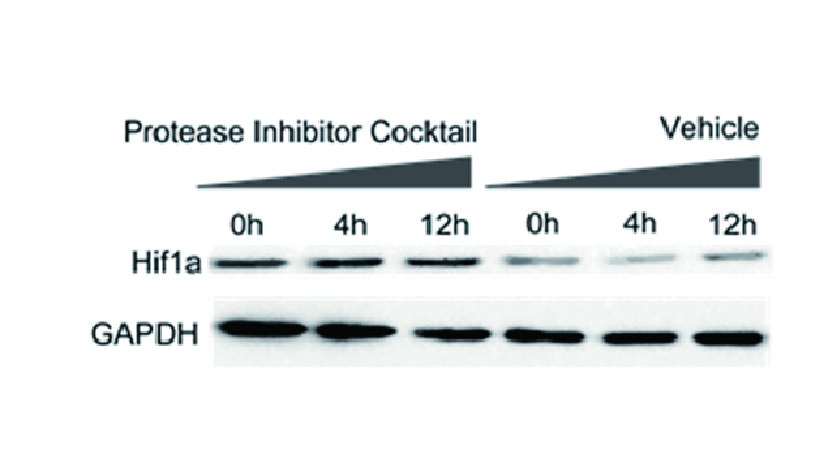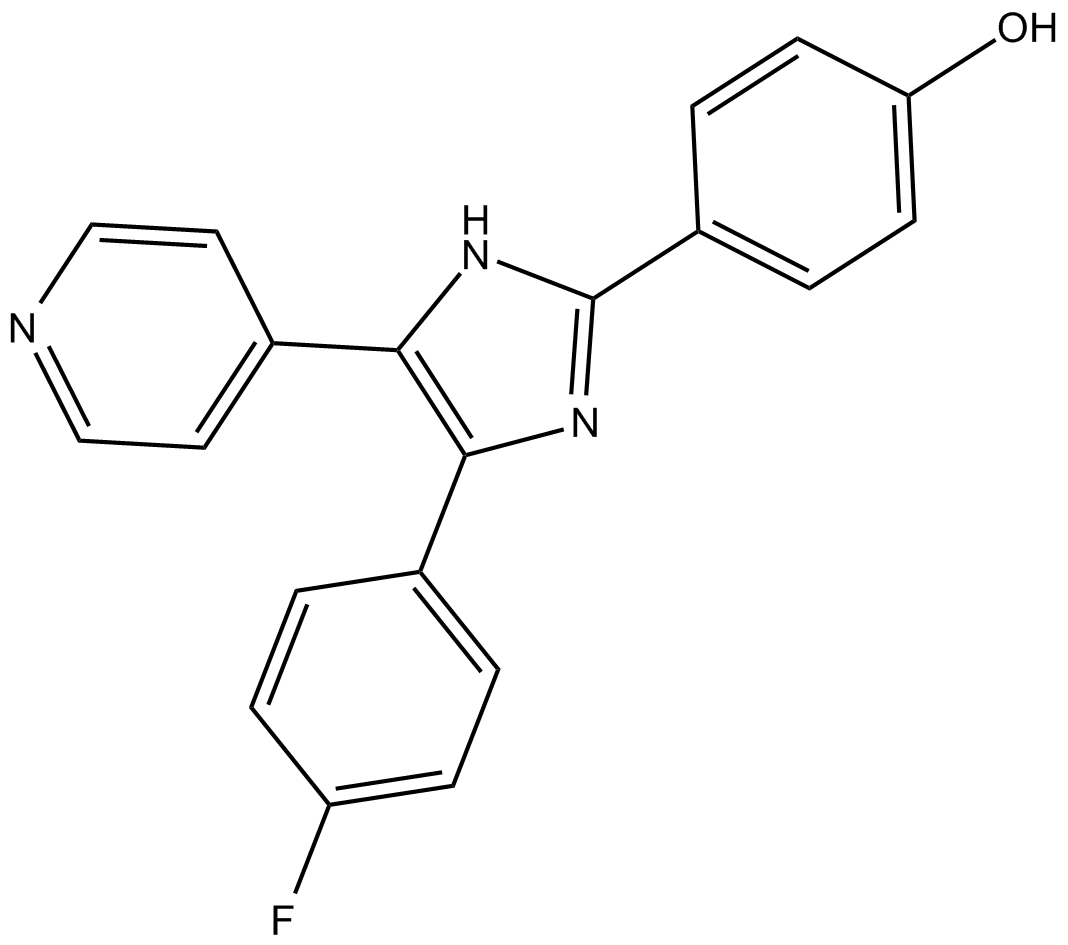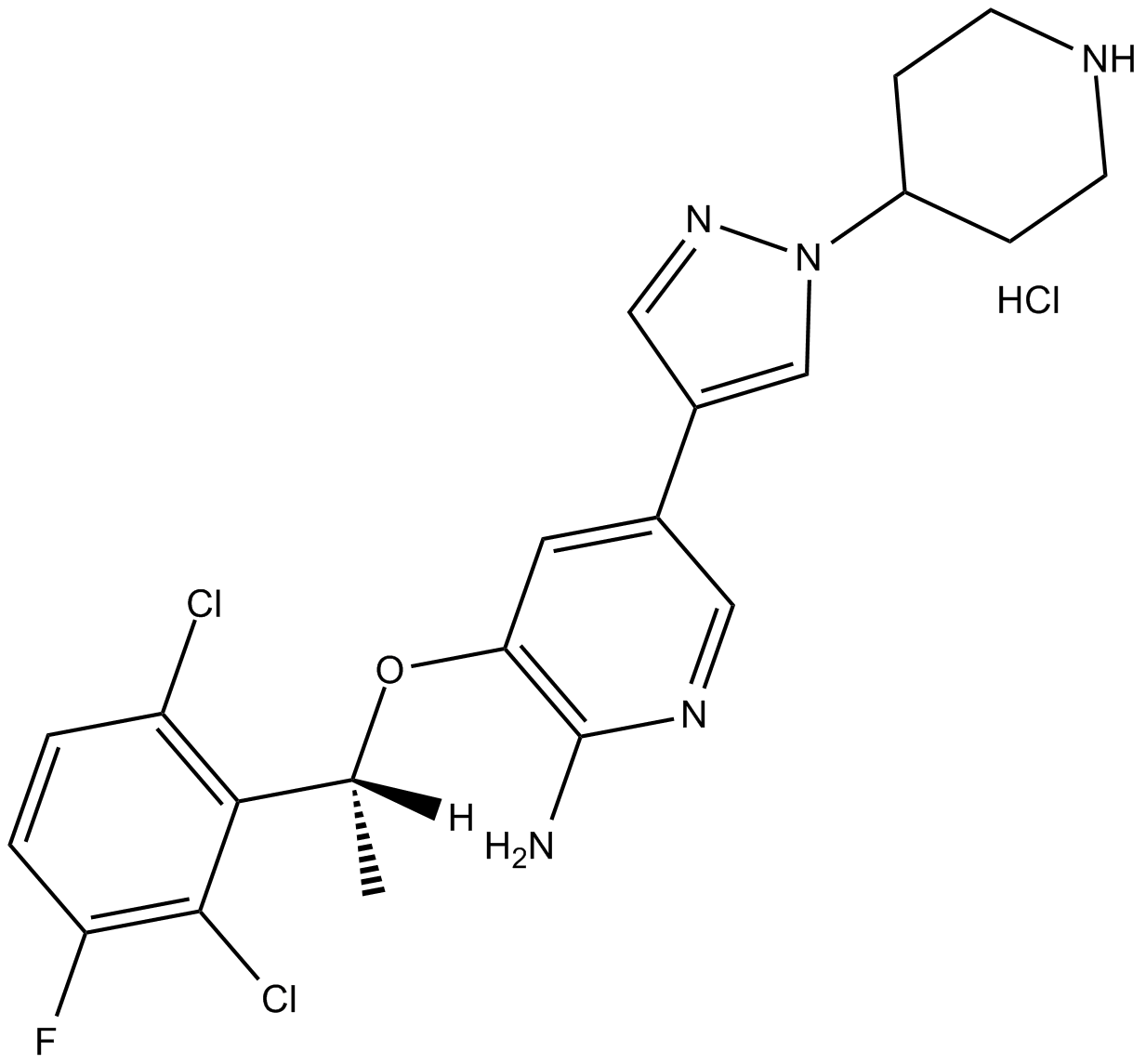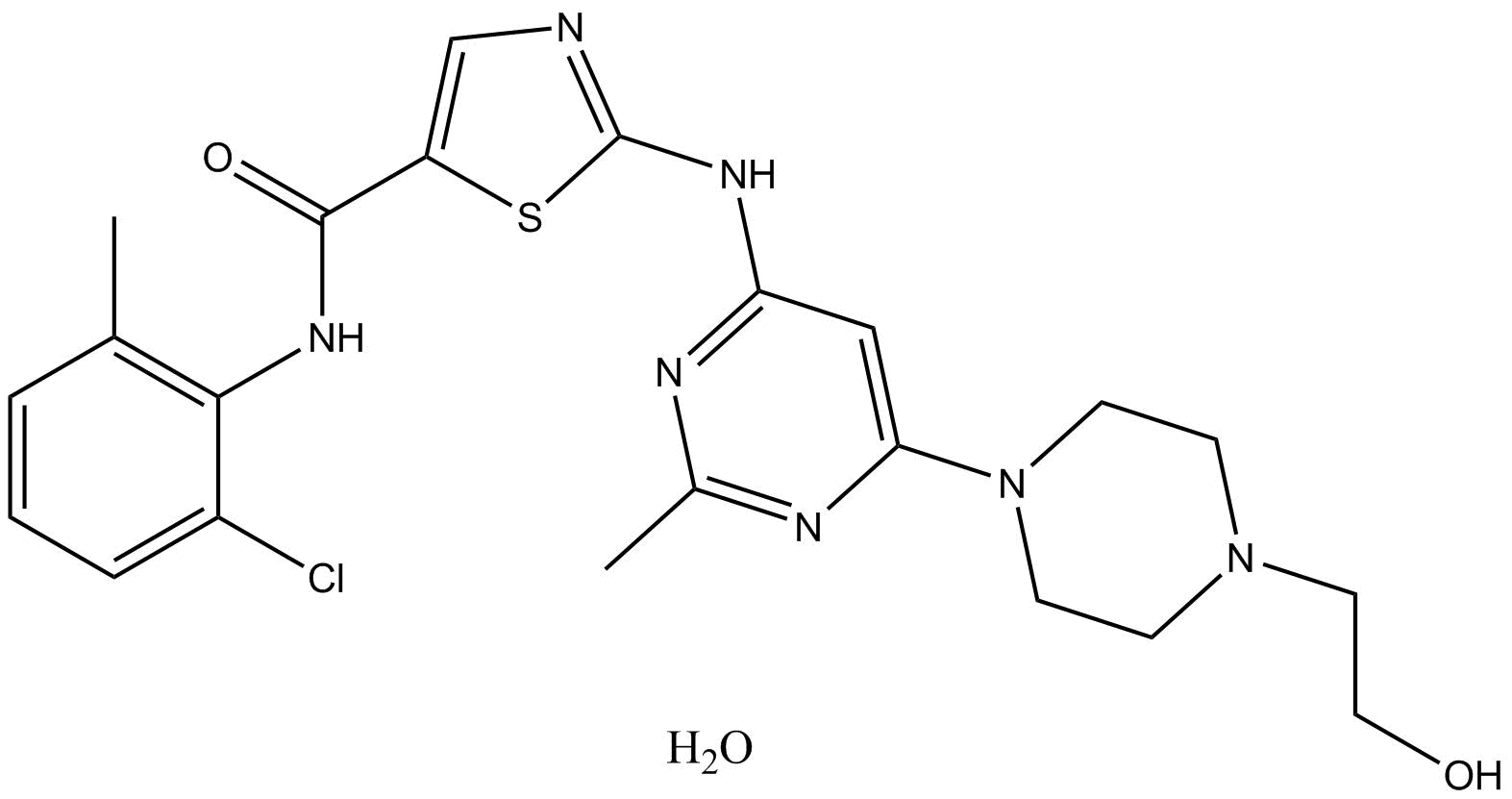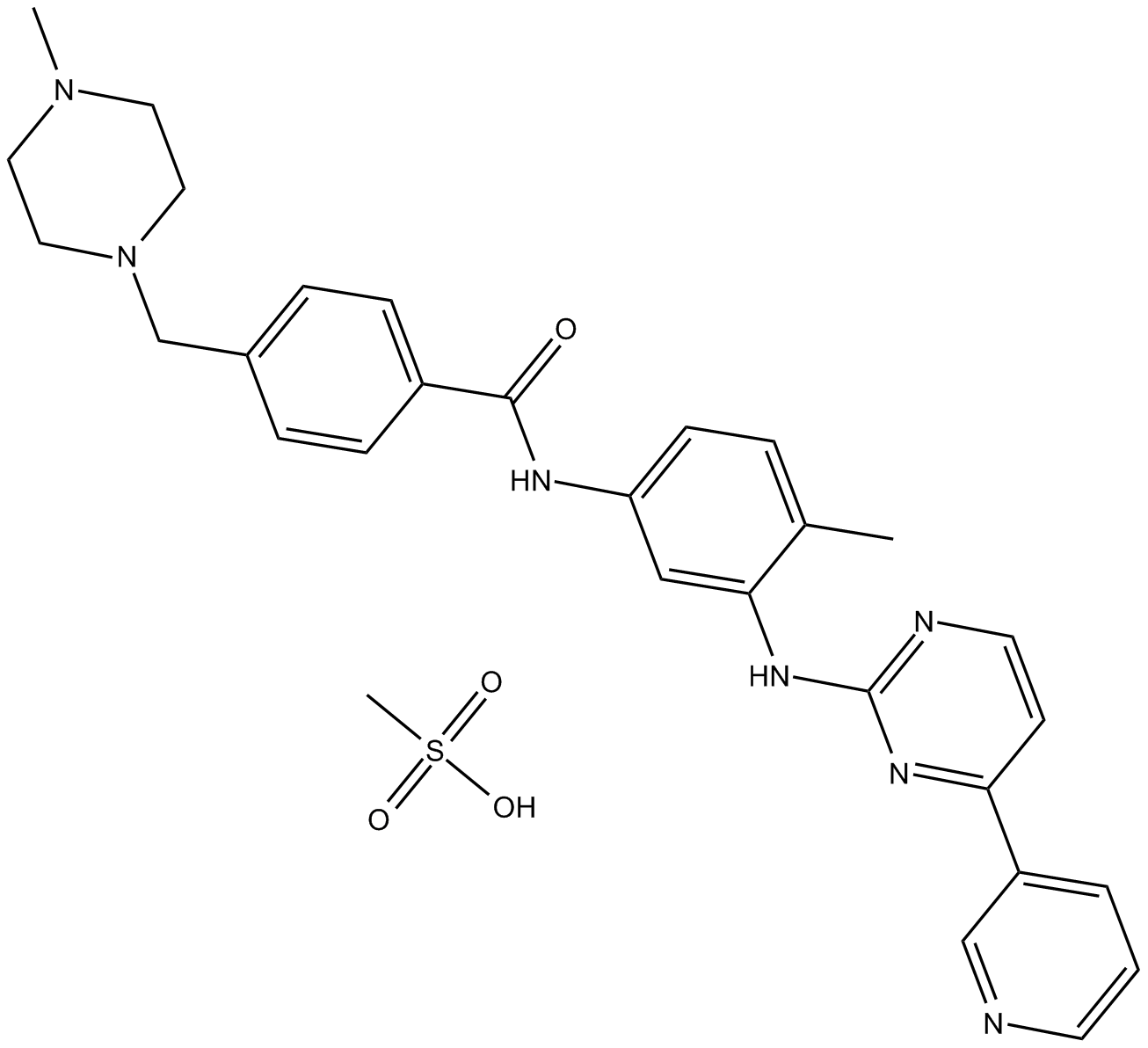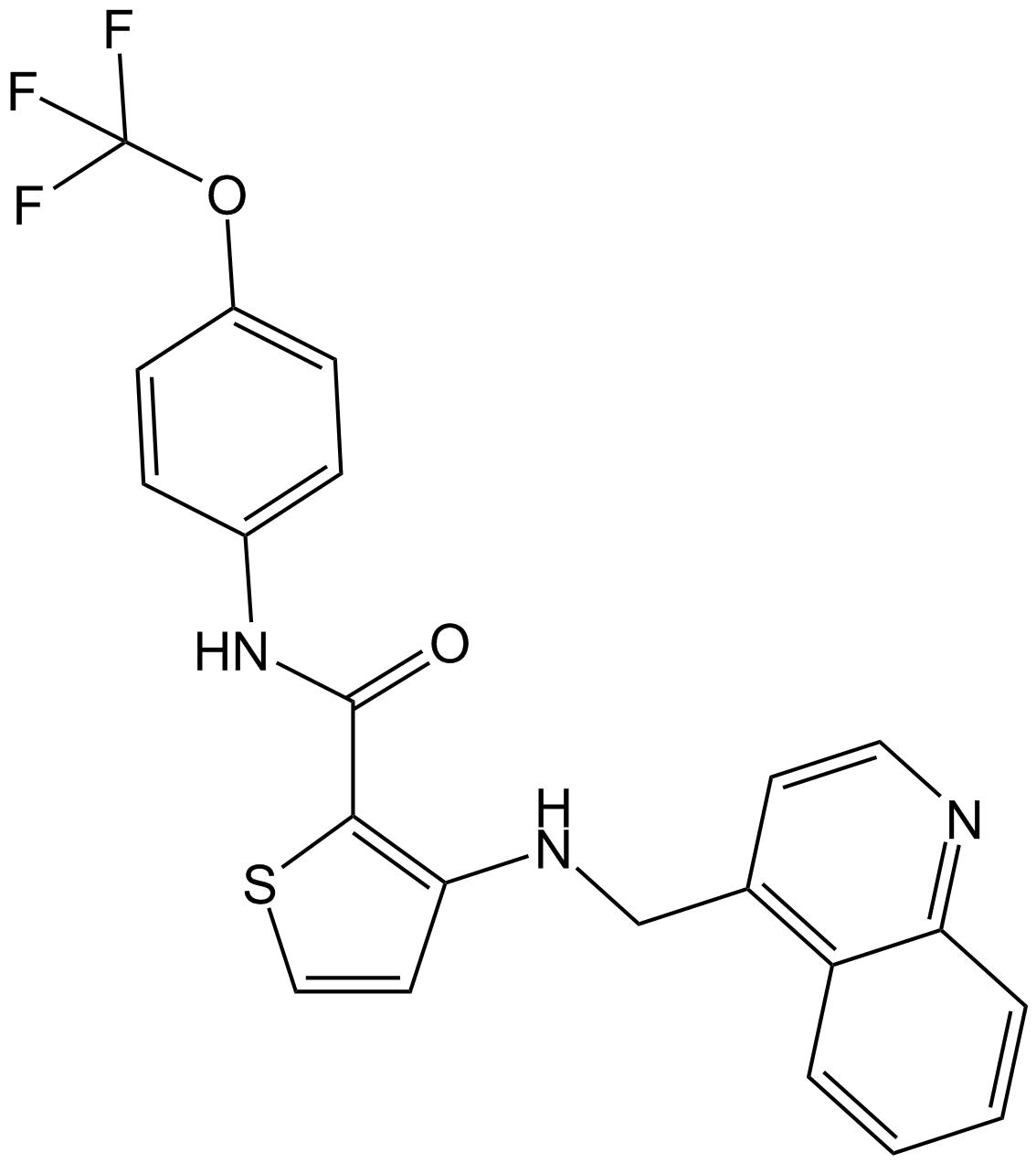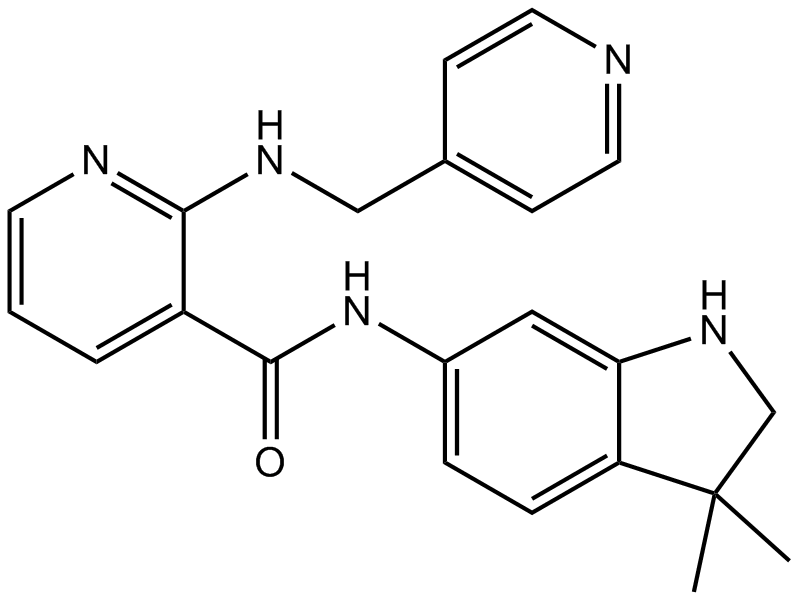Imatinib (STI571)
Imatinib is an inhibitor of protein-tyrosine kinase with IC50 values of 0.1, 0.1 and 0.025μM, respectively against PDGF receptor, c-Kit and Abl [1].
The type 3 group of receptor tyrosine kinases includes PDGFR, CSF-1R, Flt-3, c-Kit and so on. PDGFRs are found in normal tissues, cells as well as some tumors. It is associated with several nonmalignant proliferative diseases. In vitro assays show that Imatinib can inhibit both PDGF-AA and PDGF-BB stimulated PDGF receptor phosphorylation. Imatinib is also found to inhibit the phosphorylation of c-Kit, another kinase which mediates the growth of a number of tumors. Imatinib inhibits the phosphorylation of these kinases without effecting the expression of them. Some other kinases of the type 3 group (such as Fms and Flt-3) can’t be inhibited by Imatinib, suggesting a selectivity of Imatinib. In addition, Imatinib is shown to significantly inhibit the Bcr-Abl tyrosine kinase both in cell-based assay and in vitro kinase assay. Moreover, as a downstream pathway of PDGF-mediated signals, MAP kinase activation can also be effected in rat A10 smooth muscle cells [1].
References:
[1] Elisabeth Buchdunger, Catherine L. Cioffi, Norman Law, David Stover, Sayuri Ohno-Jones, Brian J. Druker And Nicholas B. Lydon. Abl protein-tyrosine kinase inhibitor sti571 inhibits in vitro signal transduction mediated by c-kit and platelet-derived growth factor receptors. The journal of pharmacology and experimental therapeutics. 2000, 295(1): 139-145.
- 1. Irit Shapira-Netanelov, Olga Furman, et al. "Patient-Derived Gastric Cancer Assembloid Model Integrating Matched Tumor Organoids and Stromal Cell Subpopulations." Cancers (Basel). 2025 Jul 9;17(14):2287 PMID: 40723172
- 2. Fangyi Yao, Fangmin Zhong, et al. "The m6A regulator KIAA1429 stabilizes RAB27B mRNA and promotes the progression of chronic myeloid leukemia and resistance to targeted therapy." Genes Dis. 2023 Apr 12;11(2):993-1008. PMID: 37692484
- 3. Panagi I, Jennings E, et al. "Salmonella Effector SteE Converts the Mammalian Serine/Threonine Kinase GSK3 into a Tyrosine Kinase to Direct Macrophage Polarization." Cell Host Microbe. 2020;27(1):41–53.e6. PMID: 31862381
| Storage | Store at -20°C |
| M.Wt | 493.6 |
| Cas No. | 152459-95-5 |
| Formula | C29H31N7O |
| Solubility | ≥24.68 mg/mL in DMSO; insoluble in H2O; ≥2.48 mg/mL in EtOH with ultrasonic |
| Chemical Name | 4-[(4-methylpiperazin-1-yl)methyl]-N-[4-methyl-3-[(4-pyridin-3-ylpyrimidin-2-yl)amino]phenyl]benzamide |
| SDF | Download SDF |
| Canonical SMILES | CC1=C(C=C(C=C1)NC(=O)C2=CC=C(C=C2)CN3CCN(CC3)C)NC4=NC=CC(=N4)C5=CN=CC=C5 |
| Shipping Condition | Small Molecules with Blue Ice, Modified Nucleotides with Dry Ice. |
| General tips | We do not recommend long-term storage for the solution, please use it up soon. |
| Kinase experiment [1]: | |
|
Binding assays |
The kinase domains of Kdr, Flt-1, c-Met, and Tek were expressed in High Five cells using the Bac-to-Bac expression system. The proteins were then purified to near homogeneity by standard chromatographic techniques. Kinase inhibition was measured by detecting the decrease in phosphorylation of poly(Glu, Tyr) essential for the epidermal growth factor receptor. The in vitro kinase assays were carried out under optimized assay conditions (ATP concentration; Km). To determine whether Jak-2 was inhibited by STI571, 32Dp210 Bcr-Abl-expressing cells were serum starved for 8 h, and then stimulated for 10 min with 10% WEHI-3B-conditioned medium (IL-3 source). Nonidet P-40 lysates were prepared, and 500 mg of lysate was immunoprecipitated with either anti-Jak-2 antibodies (5 m l; Upstate Biotechnology), or anti-Abl antibodies (20 ml K12), overnight at 4°C. Immunoprecipitates were bound to protein G Sepharose for 1 h, washed three times with PBS, and then with kinase buffer (20 mM Tris, pH 7.5, 10 mM MgCl2 , 10 mM sodium vanadate, 1 mM dithiothreitol). Kinase assays were performed with or without 10 mM STI571, run on a 10% acryl-amide gel, and exposed on a phosphorimager. |
| Cell experiment [1]: | |
|
Cell lines |
Swiss 3T3 cells, MO7e cells |
|
Preparation method |
The solubility of this compound in DMSO is >24.7mg/mL. General tips for obtaining a higher concentration: Please warm the tube at 37 ℃ for 10 minutes and/or shake it in the ultrasonic bath for a while. Stock solution can be stored below -20℃ for several months. |
|
Reacting condition |
0-10 μM, 90 min, 37°C |
|
Applications |
Pretreatment of Swiss 3T3 cells with STI571 caused a dose-dependent inhibition of PDGF-AA-stimulated PDGF receptor phosphorylation with an IC50 value of ~0.1 μM. Treatment of MO7e cells with SCF in the presence of STI571 dose-dependently inhibited SCF-stimulated tyrosine phosphorylation with an IC50 value of ~0.1 μM. STI571 inhibited PDGF-BB-stimulated A10 cell proliferation with an IC50 value of 0.2 μM. |
|
Other notes |
Please test the solubility of all compounds indoor, and the actual solubility may slightly differ with the theoretical value. This is caused by an experimental system error and it is normal. |
|
References: [1] Elisabeth Buchdunger, Catherine L. Cioffi, Norman Law, David Stover, Sayuri Ohno-Jones, Brian J. Druker And Nicholas B. Lydon. Abl protein-tyrosine kinase inhibitor sti571 inhibits in vitro signal transduction mediated by c-kit and platelet-derived growth factor receptors. The journal of pharmacology and experimental therapeutics. 2000, 295(1): 139-145. |
|
| Description | Imatinib is a selective inhibitor of protein-tyrosine kinase with IC50 values of 0.1, 0.1 and 0.025 μM, respectively against PDGF receptor, c-Kit and Abl. | |||||
| Targets | PDGF receptor | c-Kit | Abl | |||
| IC50 | 0.1 μM | 0.1 μM | 0.025 μM | |||
Quality Control & MSDS
- View current batch:
Chemical structure
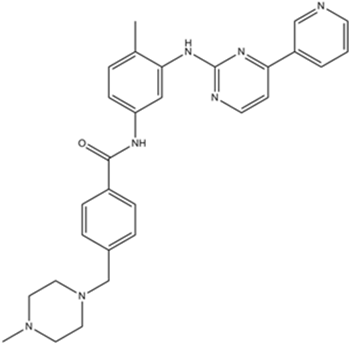
Related Biological Data
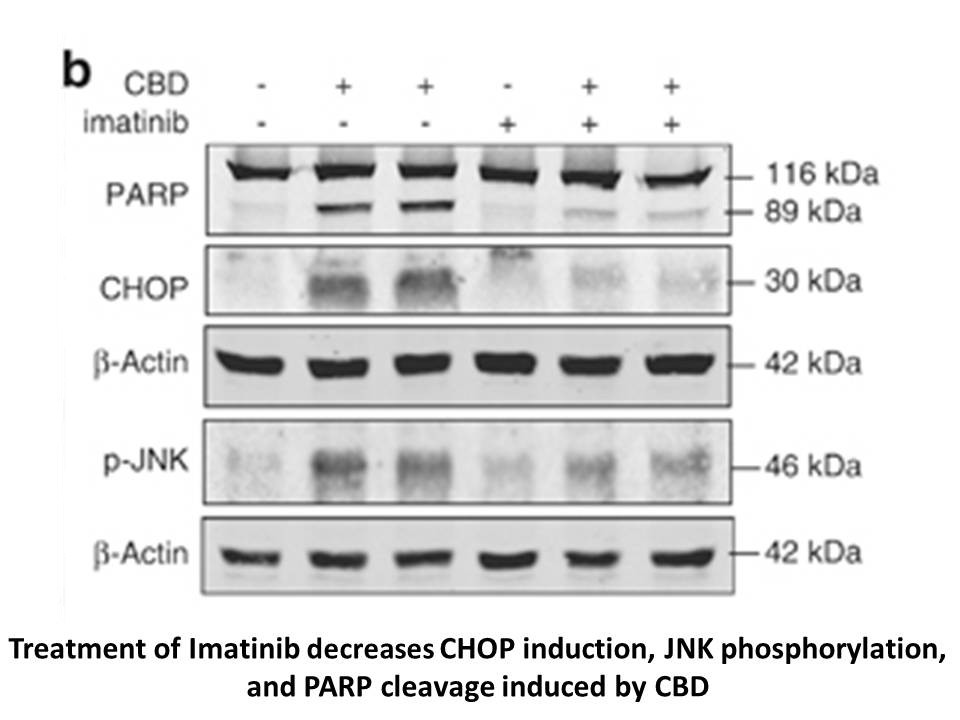
Related Biological Data
